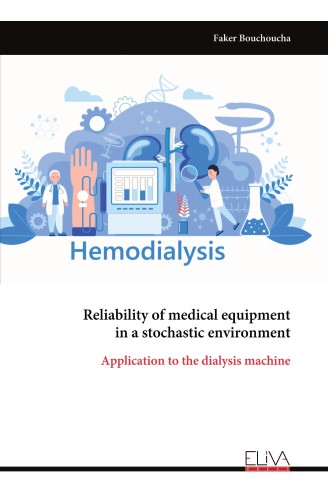
Reliability of medical equipment in a stochastic environment
$ 45.5
Description
Abstract Dialysis device is vital medical equipment which is directly responsible for the patient’s life, used to treat kidney failure. In this work, the reliability of the Hemodialysis machine in uncertain environment was analyzed using a Weibull distribution approach. A statistical analysis of the failure data is adopted to harness the failure and repair data of the machine. From the failure history, the scale and the shape parameters of the Weibull distribution were estimated using a linearization of the cumulative density function. The efficiency of the used method is illustrated by the quality fitness indices. The question of the reliability and the failure rate is treated in order to develop an efficient tool for the medical equipment monitoring Dialysis machines operate in presence of several sources of uncertainties, which can affect their reliability during all their life phases. This book presents a study of the random reliability of the dialysis machine in a stochastic environment through the two-parameter Weibull distribution. The estimation of the shape and scale parameters through analytical and graphical methods based on the failure history of the device is among the objectives of this work. The uncertainties in the machine environment are related to variability in physical and geometric parameters, fluctuations in load conditions, stress boundary conditions, and also to physical laws and simplifying assumptions used in the modeling process. These uncertainties are introduced in Weibull parameters, and their effect on the device's reliability was studied. The involved parameters were considered a Gaussian variable, and their means and standard deviations were calculated in several configurations of the dialysis device. The random failure rate and reliability were treated and discussed. The random systematic inspection period is studied to install an efficient preventive maintenance program.



